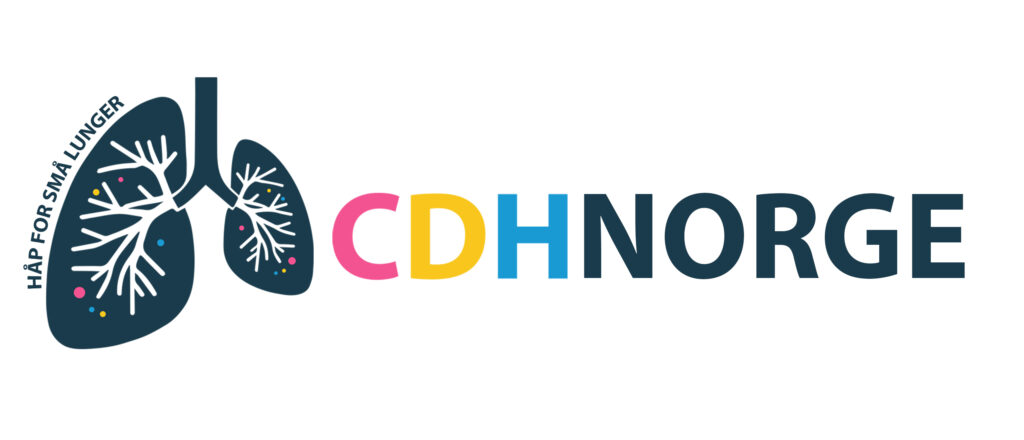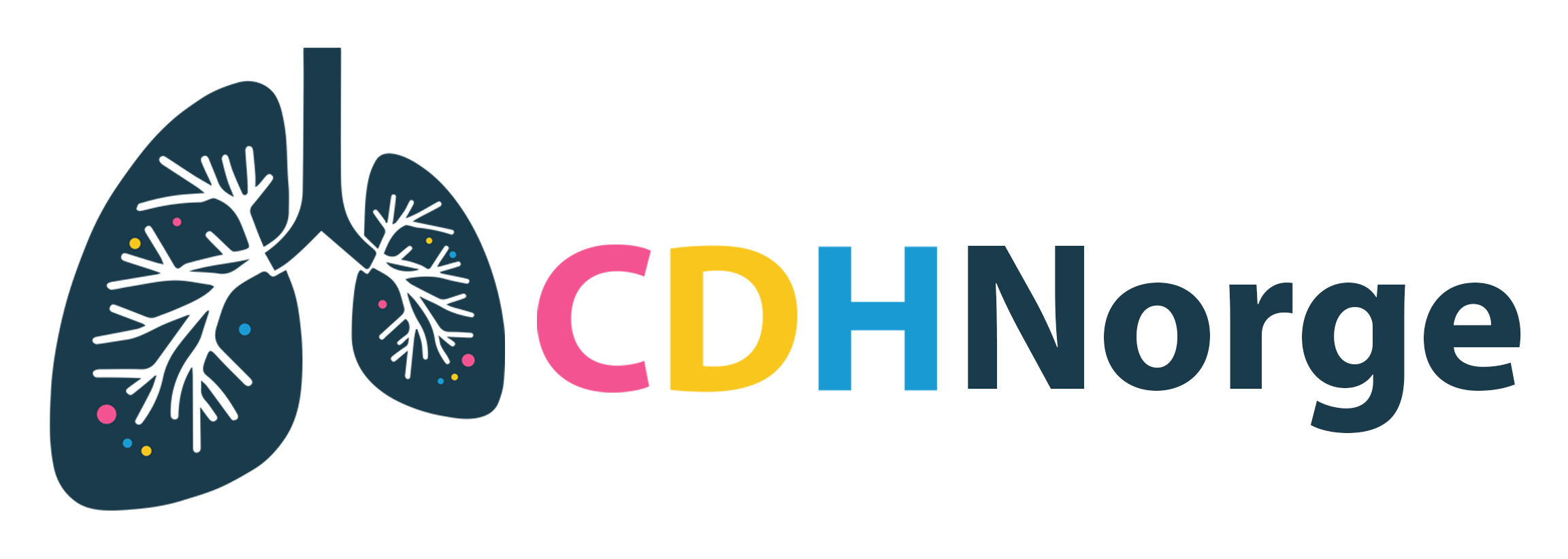CDH Norway was founded on September 22nd 2022, on the national day for patient relatives.
For far too many years, parents of children with CDH have had to stand on their own two feet when dealing with the diagnosis and the healthcare system. Far too many have experienced frustration at the lack of available information in Norwegian, or finding outdated or inconsistent information. The internet abounds with old statistics and foreign figures, which help to form a wrong impression of the prognosis for Norwegian CDH children. Moreover, it has been difficult for newly diagnosed people to come into contact with others in the same situation. This is often due to the fact that many of the children grow up and live more or less free of symptoms, although a few may experience reherniation. Parents may therefore not always feel a need for follow-up and networking when their children are older. Other children need closer follow-up well into their teens and adulthood, for example due to chronic lung disease or scoliosis. A few children get CDH as part of a larger disease picture, where perhaps follow-up of other challenges or syndromes overshadows the need for information about CDH, such as Down’s Syndrome and CHD (congenital heart disease).
To live with uncertainty and fear
The time from the diagnosis until more information is available can be experienced as long and frightening. On top of this, dealing with the fact that a lot will be uncertain until after birth is a great psychological strain. Many feel overwhelmed, at a loss and in a state of «waiting grief». Pregnant women will be informed that with such a serious diagnosis, they can choose to terminate the pregnancy up to week 22. For many, it is difficult to deal with such a choice. The combination of a short deadline and a feeling of not knowing enough about their child’s prognosis puts parents in an inhumanly difficult position. It is really important to have someone to talk to in this situation.
CDH is a rare diagnosis – approx. 8-10 children with the diagnosis are born annually on a national basis, therefore as parents you will encounter varying knowledge about the diagnosis, the prognosis and various protocols for follow-up of patients among the hospitals, but also among the doctors within the same hospital. It is nevertheless important to understand how individually different the diagnosis affects each child, and therefore the follow-up will also have to be tailored to the individual. As relatives, it can be challenging to not always receive clear answers about the prognosis and planned treatment – but it is also not possible for the hospital to provide this before the child is born.
Living with so much uncertainty and fear for one’s unborn child, for the future and perhaps for the relationship you are in and other relationships connected to the child, takes a toll on a person. Having a child you can’t hold, stepping into this bubble where you live minute by minute, not day by day, walking hospital corridors week after week, maybe month after month – it leaves a mark. We cannot emphasize enough the importance of preparing, networking, talking to others, being there for each other. Many, especially mothers of children with CDH, struggle with the late effects of such stress in the form of PTSD. Know that the aids are there and use them. It is usually only when the storm has died down and you have returned home that the stress load makes itself felt.
Our role
Our biggest role as an organization is thus to be there for parents who have recently received the diagnosis for their child, but also to be a platform for those who need and want further contact and togetherness within the CDH family. All stories are different and all experience will be able to help new families through their CDH journey. Your voice as a member of the association is extremely important for those who come after you. Being part of such a community can also help children with a rare diagnosis to see that they are not alone, and to make lifelong friendships. One should also not underestimate the value of a community of adults who have been through the same journey, as having a seriously ill child is a life-changing experience both practically in everyday life, but also in body and mind. We carry our history with us for the rest of our lives, and we all have different prerequisites for coping and processing. Sometimes it’s good to just be around someone who understands without the need to explain so much.

CDH Norway’s purpose:
- To spread correct information and knowledge about CDH, diagnosis and treatment, as well as contribute to increased familiarity and understanding of the diagnosis among healthcare personnel, relatives and the general public.
- To inform relatives of children with CDH about treatment options, support measures and rights.
- To offer physical and digital meeting places for people with CDH and their relatives, in order to strengthen a sense of community and cohesion within a relatively small patient group.
- To contribute to CDH research
- To work for CDH to become better known within all parts of the public assistance system, so that people with CDH and their relatives receive appropriate treatment, care, support and help.
- To have contact with other foreign and international associations and organizations for CDH.
- To be a natural point of contact and support device for parents who have recently received the diagnosis of their child.
